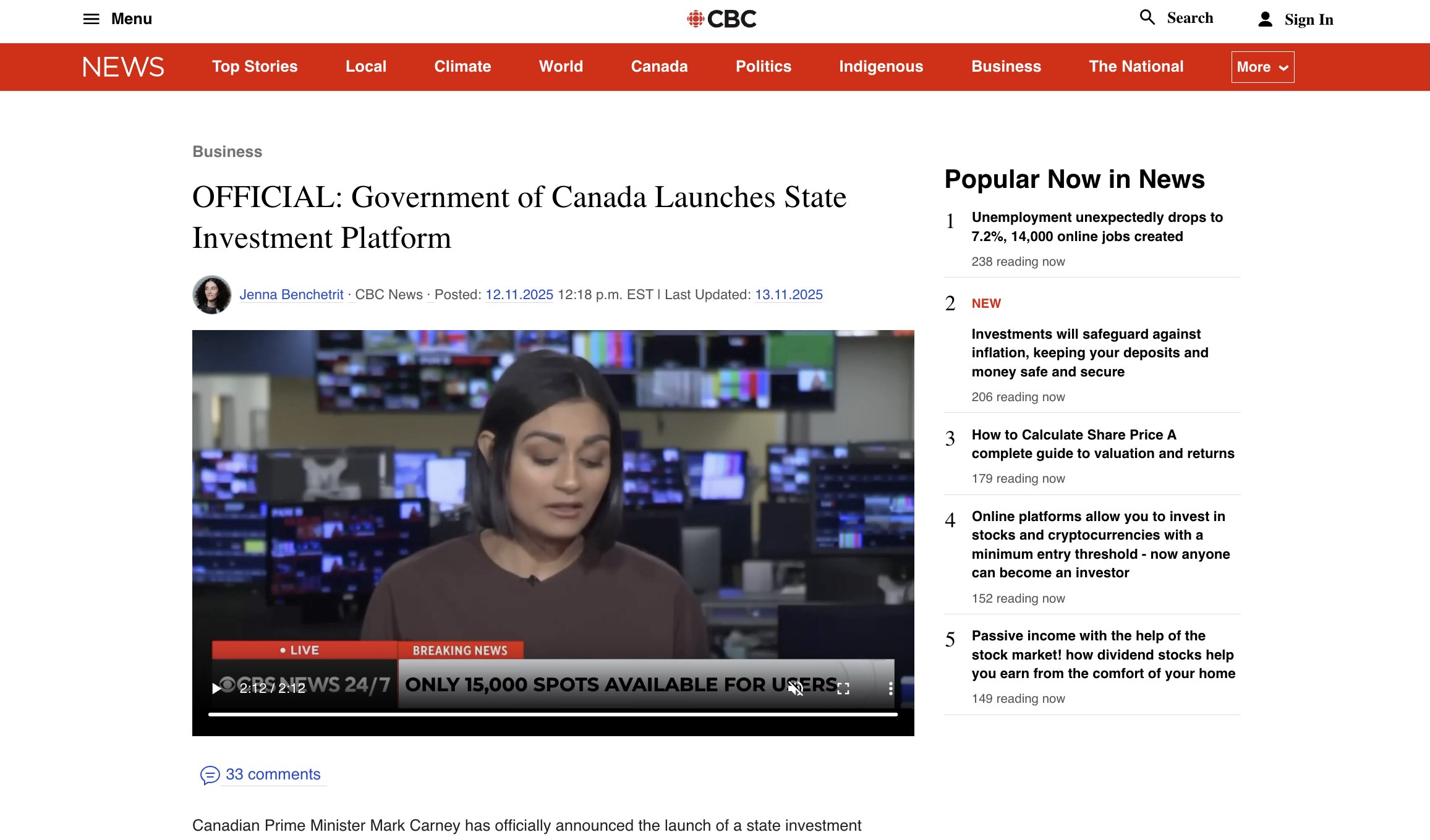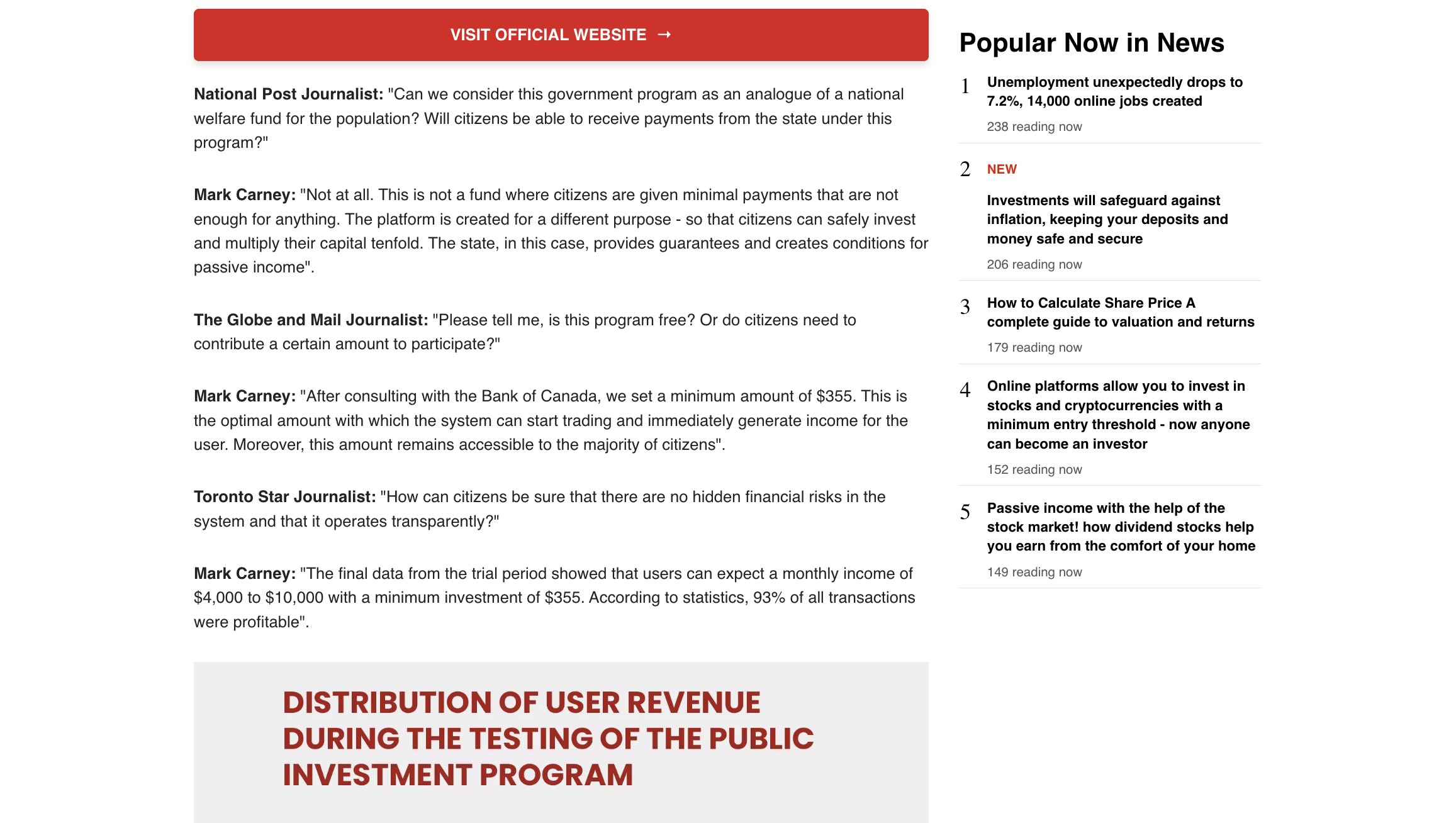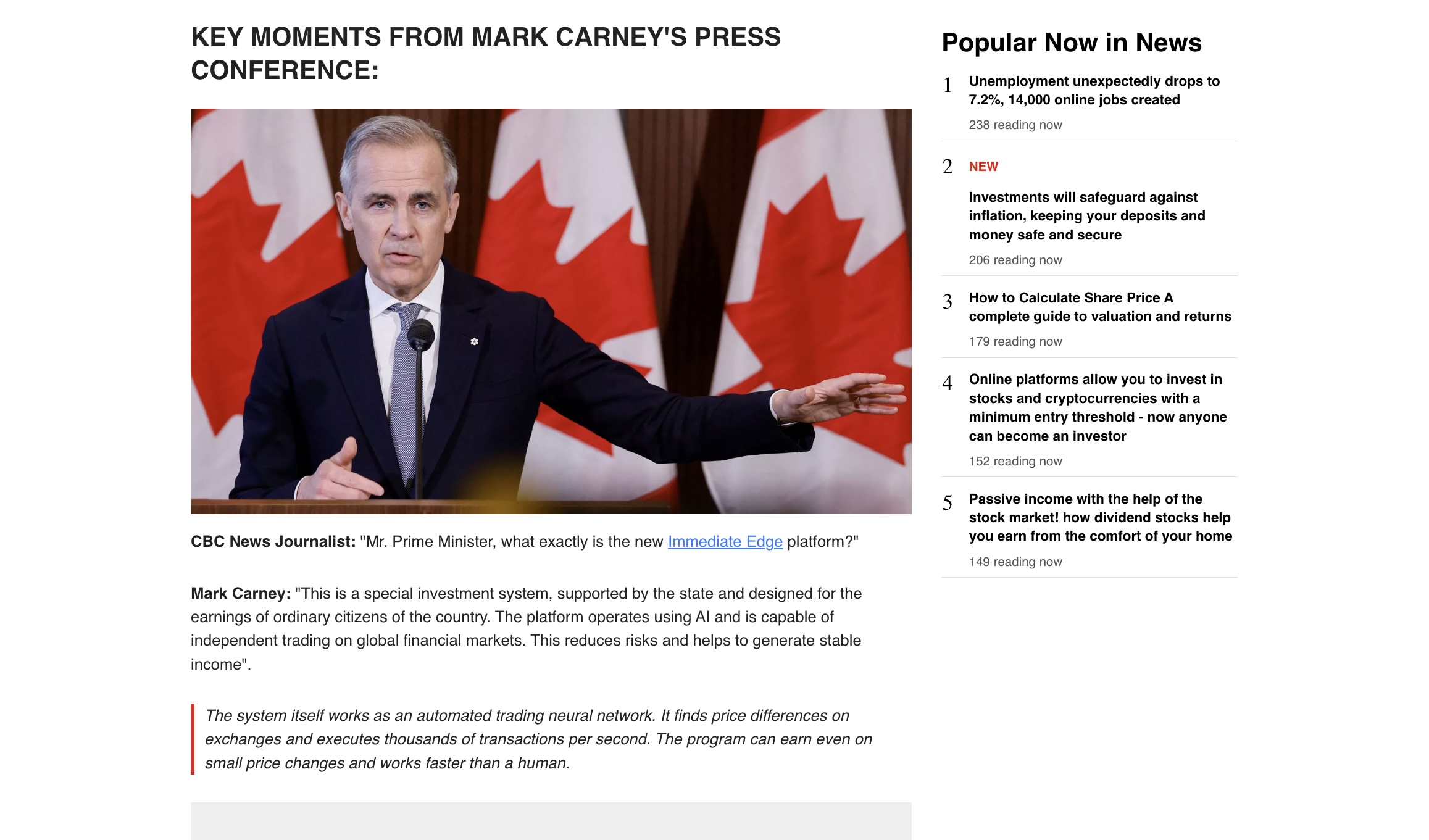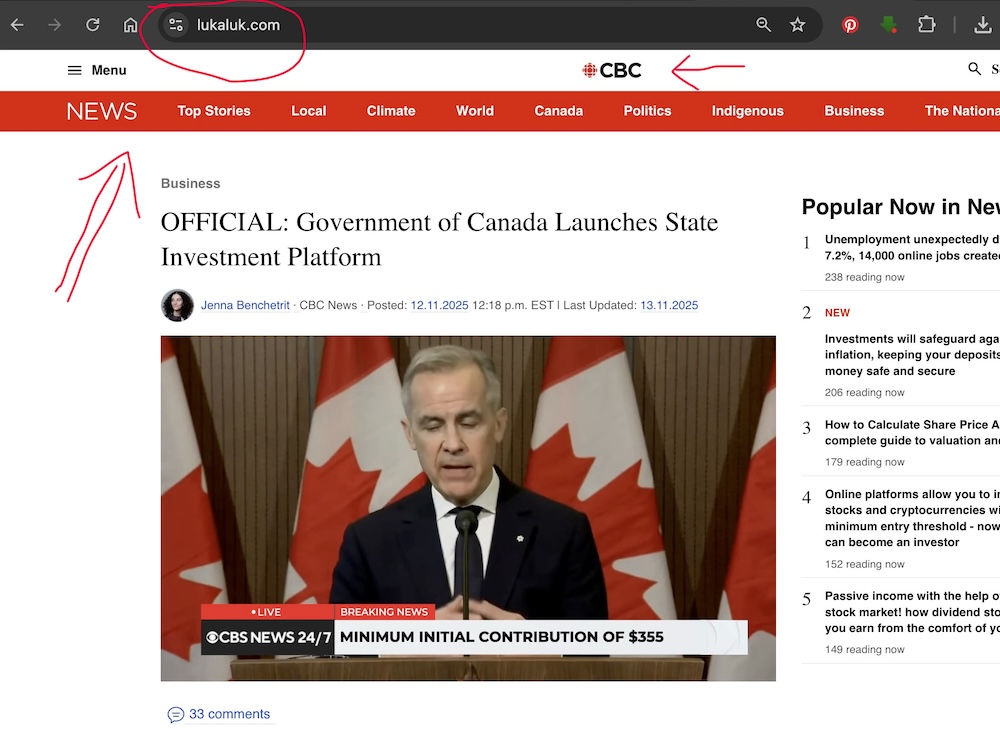A sophisticated online scam is circulating across Canada, using AI-generated deepfake videos of Prime Minister Mark Carney to promote a fictitious government “AI investment platform.” The fraudulent campaign is being hosted on a website that mimics the appearance of CBC News, but the domain leads to lukaluk.com, a site previously flagged for deceptive practices.

Investigators and anti-fraud agencies warn that the site has no affiliation with the Government of Canada, the CBC, or any legitimate financial institution.
Website Mimics CBC to Mislead Investors
The fraudulent page copies CBC’s fonts, layout, colour palette, and headline styles to appear credible. It includes fabricated quotes from Carney and fictitious interviews with major Canadian news outlets.
None of these quotes, interviews, or statements are real.
The Government of Canada has not launched any AI investment platform, and Mark Carney has not endorsed any independent trading system.

AI-Generated Videos Used to Impersonate the Prime Minister
At the centre of the scam is a series of highly convincing AI-generated videos in which a synthetic version of Mark Carney appears to promote automated trading, government-guaranteed returns, or special investment programs “for everyday Canadians.”
These videos use:
-
AI face-swapping,
-
Voice cloning,
-
Scripted dialogue based on misappropriated news content.
None of the footage is authentic.

Seniors Report Being Targeted
Local newsrooms and community organizations report receiving calls from elderly Canadians who believed the video was real and wanted to know how to sign up.
Fraud experts say seniors are being targeted through:
-
Facebook ads,
-
Sponsored posts,
-
Manipulated news pages,
-
Email campaigns claiming “exclusive access” to government-backed investment tools.
Once an individual clicks the link, they are directed to offshore trading pages or pressured to make an immediate deposit. Funds sent to these platforms are often unrecoverable.
Regulators Have Issued Alerts
Several Canadian regulatory agencies have issued public warnings about scams using AI-generated Carney impersonations, including:
-
The Financial and Consumer Affairs Authority of Saskatchewan (FCAA)
-
The Canadian Anti-Fraud Centre (CAFC)
Both organizations stress that modern deepfake tools make it increasingly difficult for the public to distinguish real government communications from fabricated ones.
How to Identify the Fraudulent Website
Despite its visual similarity to CBC, several signs confirm the site is illegitimate:
-
The URL is lukaluk.com, not cbc.ca.
-
The page contains no author, publication timestamp, or navigation to real CBC sections.
-
Comments beneath the article are fake and cannot be interacted with.
-
The content links to offsite “investment dashboards” unrelated to any Canadian institution.
-
No reputable news organization hosts investment signup buttons on news articles.

What Canadians Should Do
Authorities are urging the public to take the following steps:
-
Do not click any investment links on websites mimicking CBC or other news outlets.
-
Never share banking or personal information with platforms claiming government backing.
-
Verify legitimate government programs through canada.ca.
-
Report suspicious ads, videos, or websites to the Canadian Anti-Fraud Centre:
antifraudcentre-centreantifraude.ca -
Warn elderly friends and relatives—fraudsters are focusing heavily on seniors.
A Growing Trend in AI-Driven Fraud
Cybersecurity experts note that this scam is part of a broader rise in deepfake-enabled misinformation in Canada. Fraudsters now routinely spoof political leaders, news anchors, and media logos to gain credibility.
Officials emphasize that neither the Prime Minister nor any federal agency promotes investment through AI trading platforms, cryptocurrency bots, or rapid-return programs.

